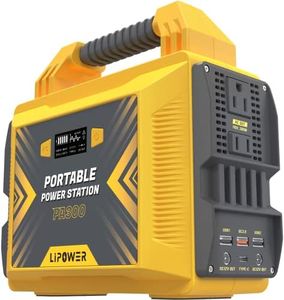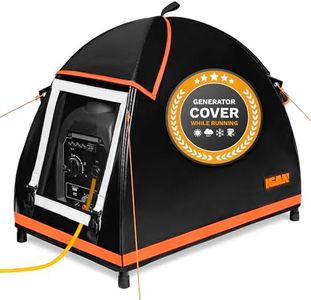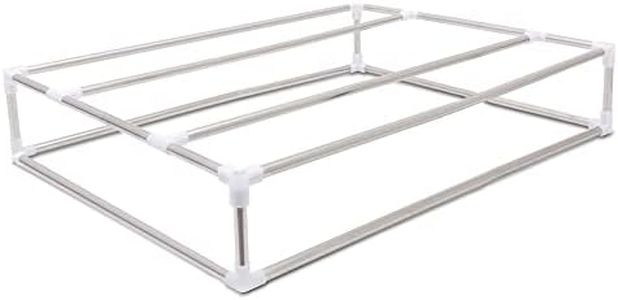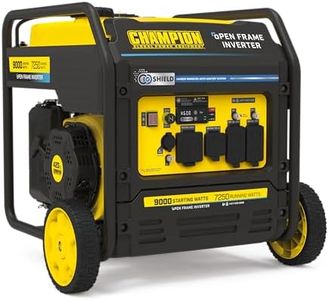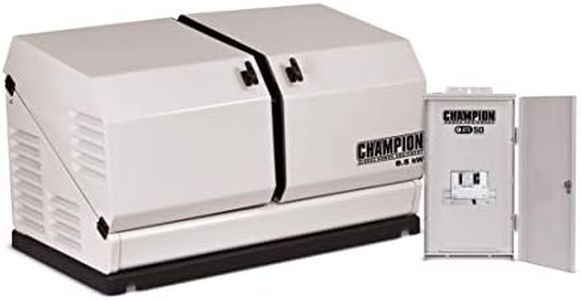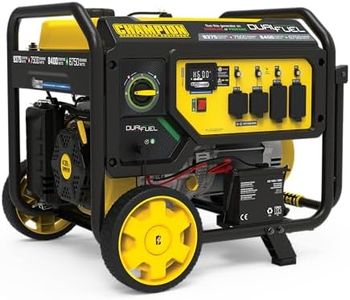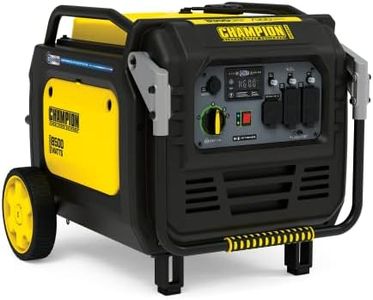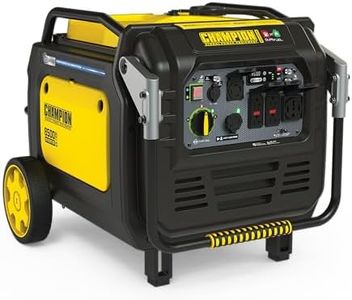10 Best Champion Generators 2025 in the United States
Our technology thoroughly searches through the online shopping world, reviewing hundreds of sites. We then process and analyze this information, updating in real-time to bring you the latest top-rated products. This way, you always get the best and most current options available.

Our Top Picks
Champion Power Equipment 15,000-Watt Electric Start Tri Fuel Home Backup Portable Generator with CO Shield
Most important from
30 reviews
The Champion Power Equipment 15,000-Watt Electric Start Tri Fuel Home Backup Portable Generator is a robust option for those looking for a versatile and high-powered generator. It offers a substantial power output with 15,000 starting watts and 12,000 running watts, making it suitable for both commercial and residential use. One of its standout features is its tri-fuel capability, operating on gasoline, propane, or natural gas, which provides flexibility depending on fuel availability. Additionally, it includes the necessary hoses for natural gas and propane, ensuring you can get started right away without extra purchases.
The generator boasts a run time of up to 9 hours on a full tank of gasoline, which is considerable for extended use. However, it's worth noting that the noise level is relatively high at 78 dBA from 23 feet, which might be a concern for those sensitive to noise. Portability is facilitated by a wheel kit, although its hefty weight of 331 pounds may still pose a challenge for some users. On the plus side, it features an electric start with a reliable toggle switch and a CO Shield carbon monoxide auto shutoff system for added safety. The Intelligauge system helps monitor power output and track maintenance intervals effectively. Users also benefit from a 3-year limited warranty and free lifetime technical support. Its power, fuel flexibility, and safety features make it an excellent choice for users needing a reliable and versatile generator.
Most important from
30 reviews
Champion Power Equipment 4500-Watt Electric Start Dual Fuel RV Ready Portable Inverter Generator with Quiet Technology and CO Shield
Most important from
2894 reviews
The Champion Power Equipment 4500-Watt Portable Inverter Generator offers a versatile and powerful solution for various power needs, especially for RVs, camping, and tailgating. One of its main strengths is the dual-fuel capability, allowing you to operate it on either gasoline or propane, which can be very convenient based on availability and preference. With a noise level of 61 dBA, it's relatively quiet, making it suitable for environments where noise is a concern.
The power output is solid, providing 4500 starting watts and 3500 running watts on gasoline, and 3150 running watts on propane, ensuring it can handle most of your electrical needs. Its extended run time of up to 14 hours on gasoline and 21 hours on propane means you can use it for longer periods without frequent refueling. Portability is another advantage, though it weighs 99.2 pounds, it is designed to be moved around as needed, making it practical for outdoor use. The electric start feature with the EZ Start Dial simplifies the startup process, which is great for users who prefer hassle-free operation.
On the downside, while it does offer a good amount of power, the weight might be a bit challenging for some users to handle without assistance. Additionally, the need for an optional parallel kit to increase power output means an additional purchase if you require more power. The built-in CO Shield is a significant safety feature, automatically shutting down the generator when harmful carbon monoxide is detected. This generator is backed by Champion's 3-year limited warranty and free lifetime technical support, adding peace of mind for long-term use. This generator is ideal for those seeking a reliable, versatile, and relatively quiet power source for residential and recreational use.
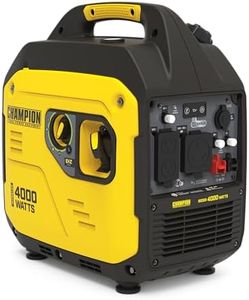
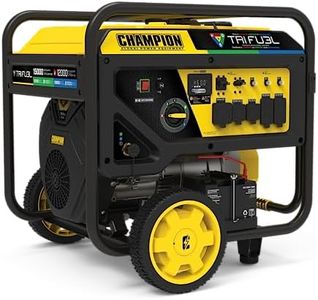
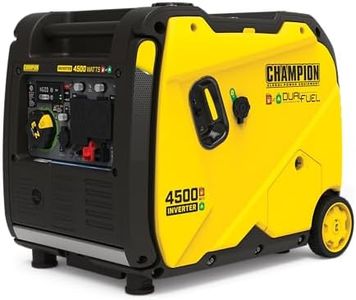
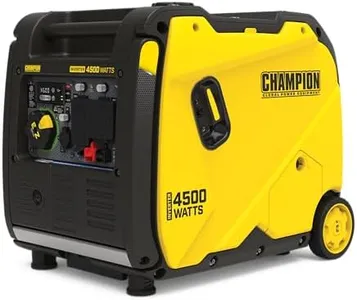
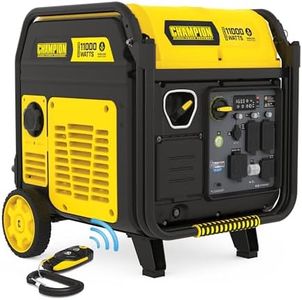
![[Upgraded Version] ALLPOWERS S2000 Portable Power Station 2000W (Peak 4000W) MPPT Solar Generator 1500Wh Backup Battery with 4 AC Outlets for Outdoor Camping RV Emergency Off-Grid](https://images-proxy.bestreviews.guide/OouIKpk4unEf0t5j_R8qV3SP1_g=/0x300/https://m.media-amazon.com/images/I/51n9OTptdIL._AC_CX679_.jpg)

